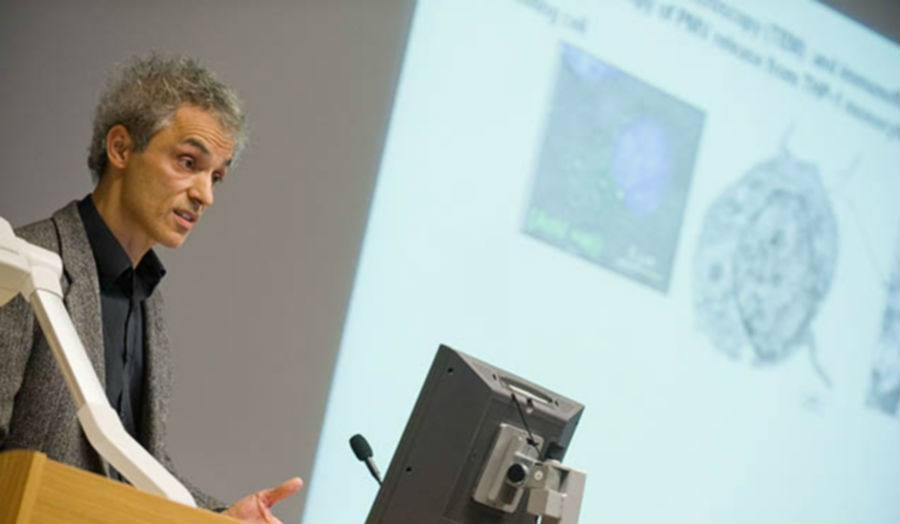Stem cell spin-off technique could revolutionise kidney treatment
Date: 14 March 2014
Scientists at London Metropolitan University are part of an EU consortium that has secured a €1.5m funding grant to explore a new approach to repairing organ damage.
The Cellular and Molecular Immunology Research Centre (CMIRC), based in the Faculty of Life Sciences and Computing at London Met, is part of a consortium which includes the universities of Barcelona and Utrecht and the healthcare company Fresenius Medical Care.
The money will be used to investigate how a novel use of stem cells can repair kidney damage. The work will focus on microvesicles – fragments of cell membrane that are shed from almost all cells.
“Microvesicles are important as they act as a vehicle for communication between cells,” explained Professor Jameel Inal, Director of the CMIRC at London Met (pictured). “Microvesicles from stem cells head straight to the injured area of the organ and begin stimulating repair, and so our research will look at ways of using microvesicles in therapy.”
London Met is one of the leading institutions in the field of microvesicle study, which is rapidly emerging as an important area of medical research.
“We’ve known about the existence of microvesicles for two decades now, but it is only recently that their importance has been realised,” Professor Inal added. “London Met has been there from the start – there’s no-one else doing this kind of work in the UK.
“Stem cell research is going to be at the heart of the next big breakthroughs in medical science, and so it’s very exciting to be applying our microvesicle knowledge in this area.
“We are living in the century of the stem cell.”
Find out more about the Faculty of Life Sciences and Computing at London Met

